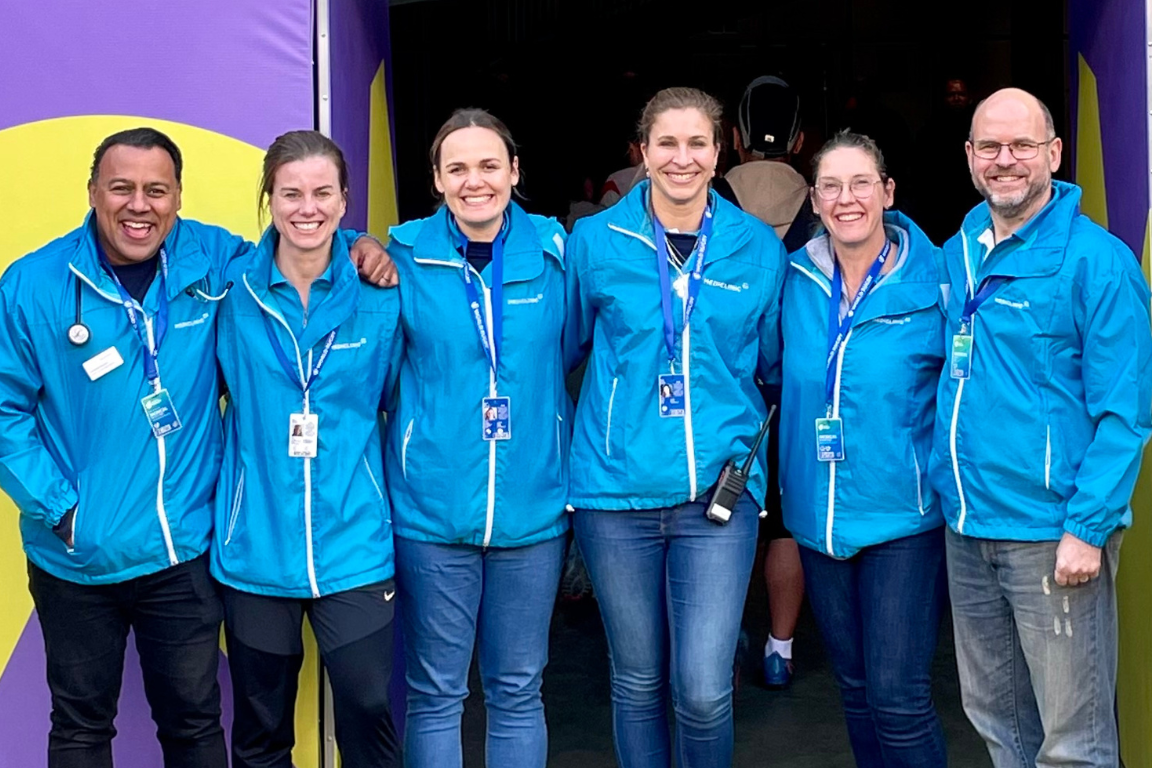Led by event medicine specialist and Head of the Corporate Events Department at Mediclinic Southern Africa, Dr Darren Green, Mediclinic’s first all-women events team will bring their expertise to the upcoming Women’s XV (WXV) Rugby Tournament.

“We’re showing the world the true resilience, strength and veracity that lies in each woman, in more ways than one,” says Veronica Austin, Clinical Logistics Coordinator for Mediclinic Corporate Events. As one of the biggest global calendar highlights in women's rugby, the WXV is a three-leg event with matches taking place in South Africa, Canada, and Dubai. South Africa is set to host nine international women's rugby teams between 27 September and 12 October.
After Women’s Month in August, it seemed particularly apt to have an all-women medical team at a women’s rugby tournament, says Dr Green. “We want to celebrate the advances in women's rugby across the world. We also plan to celebrate and showcase our female staff’s expert contribution to the game of rugby – both in South Africa and internationally.”
Getting to know the team
“We have assembled a highly skilled and versatile team who truly demonstrate Mediclinic’s values,” says Austin. The handpicked team members must be well trained in both emergency and sports medicine, and adaptable to working in high-pressure circumstances, she adds. “All the amazing women on our medical team are passionate about and dedicated to providing world-class medical care. This ensures the safety and wellbeing of rugby players from all over the world – on and off the field.”
Dr Lizanne Pieterse, the match day doctor, agrees. “As representatives of our female colleagues in the sports world, we believe gender should never dictate capabilities. Instead, our abilities, professionalism, and work ethic should speak louder than words. We aim to create an environment of trust and comfort for the athletes, so they can perform at their best. This all-women medical team can deliver top-tier care while inspiring future generations to pursue careers in this field.”
Managing the logistics
As chief medical officer for the tournament, Dr Green’s job involves pre-event, during-event, and post-event planning. “The pre-event planning means we must understand the travel requirements of all the visiting teams and create multiple contingency and emergency standby systems to look after them from their arrival onwards,” he explains.
A referral system must also be put in place for injuries during training sessions. “We identify a dedicated group of specialists across various disciplines before the tournament, for example, experts in orthopaedics and radiology for spinal injuries, physicians on call, and emergency units.”
In addition, the team implements infrastructure and referral systems for match days. The pitch-side team includes three doctors: the match day doctor; concussion doctor; and the immediate care lead. Field-side paramedics control the extrication of seriously injured patients on a golf cart. “We set up a hospital onsite at the stadium with ICU facilities, including ICU-trained nurses and doctors, as well as an emergency medicine specialist,” says Dr Green.
Common injuries
Contact sports come with many potential injuries. “We see everything from head or spinal injuries through to soft-tissue injuries, musculoskeletal tendon ruptures, fractures, long-bone issues, and so on,” Dr Green explains. “We also see other everyday medical problems like travel-related ailments, such as respiratory or stomach-related illness.
“All our doctors are qualified in advanced immediate care in rugby (AICIR). I’m an AICIR level three trainer for World Rugby in South Africa and all the people I appoint are AICIR trained, which means we all speak the same language!”
Preparing for all eventualities
Scenario planning for major incidents takes place before matches, Dr Green says. “The staff come in two hours before the match, and we run through drills and allocate roles ahead of time.”
Concussion is a major component of medical preparation as it needs to be recognised, identified, and treated at the stadium. Highly trained doctors are supported by tools, including a Hawkeye system, which consists of multiple cameras set up around the field to provide video analytics. This allows qualified personnel to constantly analyse injuries.
“We look for problems with balance, level of consciousness, abnormal eye movements, and general behaviour,” Dr Green explains. “If anything suggests a concussion, the player is removed from the field for a pitch-side assessment. This involves cognitive testing in the form of a head injury assessment (HIA), which takes 12 minutes – checking memory, cognition, balance, and so on.”
Such assessments are vital because an untreated concussion can, over time, lead to permanent brain damage and mental health problems. “Untreated players who return to the field also risk having another hit on the head when they haven't even recovered from the first one.” After a concussion, players have a graded return to play – they must follow very strict guidelines as to when they can start training again without any symptoms before being allowed to play again.
Dr Leigh Gordon is the team’s HIA/concussion doctor. “This role brings together my passions – rugby, concussion and working within a team, especially a team where I've had the pleasure of being involved in the career development of other wonderful women,” she says. “I have no doubt that our team will continue to provide the world-class medical support for which Mediclinic is known.”

